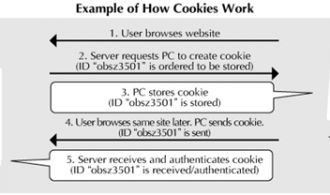The humble internet cookie is a relatively simple device that can yield powerful results for website owners. They are most frequently used to track browsing habits, in order to display relevant website pages or even, in some cases, appropriate banner advertisements.
The Truth About Cookies
As mentioned by the BBC, cookies have always had somewhat of a rough ride in the press. Put the words tracking, information and privacy in the same sentence, and it is obviously going to cause concern. However, despite what some may believe, cookies are not harmful or intrusive programs. In fact, a cookie is not even a program at all. Rather, it is a simple text file that is stored on a user’s machine. PC users can even disable cookies on their devices if they so wish, as reported by PC Magazine. However, before doing so, it is probably worth learning exactly how cookies are used.
First and foremost, a cookie can only obtain as much information as the user wants to provide. By filling out a web form with name, address and telephone number, the user is giving permission for the site cookie to save that information. However, the cookies on reputable websites will only usually only use that information to pre-fill the same form the next time the user visits that site. In this instance, a cookie is basically a useful time-saving device. User names and passwords can also be saved in the same way.
The Main Function of Cookies
The only way that cookies can retrieve personal information is if the user provides it. Otherwise, the only thing that cookies will track is browser activity. This can include which links a user clicks, how long they spend on particular pages and even, in some cases, what kind of page layout someone prefers. For internet marketing companies, cookies are highly useful tools for ensuring that relevant advertisements are shown to an appropriate audience. For instance, an online business using the services of a Cardiff Web design and digital agency, would be able to benefit from better targeted advertising. Cookies can track how many times a particular web user has seen a particular advertisement and therefore gauge its effectiveness. If the user has seen the same advert on a number of occasions and never clicked on it, then it is obvious it is not working.
In the main, cookies are used to make the web-browsing experience a more streamlined and pleasant one, ensuring that most of the content is more relevant to the individual user. The amount of personal information stored by cookies is related to how much information the user decides to impart. By law, all websites which use cookies now have to make that usage clear whenever someone visits the site for the very first time. An option is given to either disagree or agree with the cookie policy, but most users are happy to agree and continue with their browsing.

